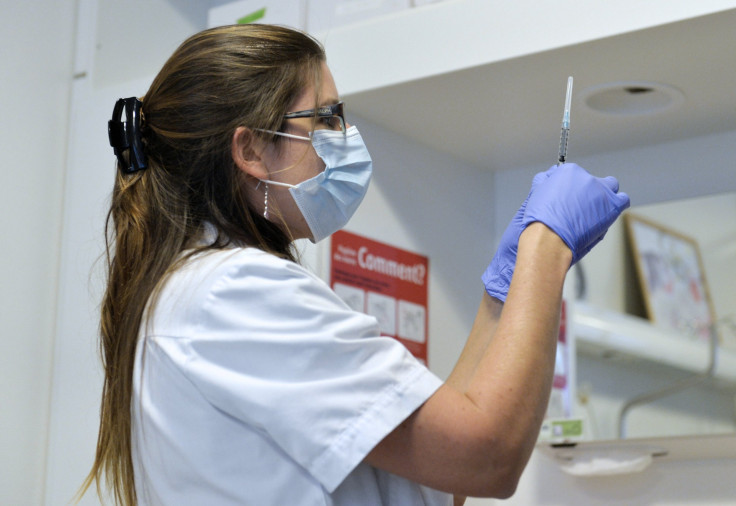Experimental Ebola Vaccine On Its Way To Liberia For Human Trials

The first vials of an experimental Ebola vaccine are on their way to Liberia for the first large-scale trials of a preventative medicine to be carried out in an Ebola-hit country during the current outbreak.
The drug, developed by British drug manufacturer GlaxoSmithKline, in association with the U.S. National Institutes of Health, uses a type of chimpanzee cold virus to deliver safe genetic material from the Zaire strain of Ebola, the variety responsible for the current outbreak of the disease in West Africa, Reuters reported.
Scientists hope to eventually enroll up to 30,000 people in the trial, which will also test a vaccine developed by NewLink Genetics and Merck. Frontline health care workers, who are considered to be at a particularly high risk of contracting the virus, are expected to be included in the trial.
Experts warned, however, that with the number of Ebola cases in decline, it may not be possible to determine whether the vaccine offers any protection against the virus, according to the BBC.
"Everybody's been racing to get trials launched as quickly as we could and as carefully as we could," Dr. Anne Schuchat, director of the National Center for Immunization and Respiratory Diseases at the Centers for Disease Control and Prevention, told The Associated Press.
The new trials come as some health experts expressed disappointment in the U.S. government's seemingly lackluster efforts to produce the experimental drug ZMapp, which was used in treating Ebola patients in the U.S. who subsequently recovered.
“I think it’s inexcusable that they haven’t moved on it,” Dr. Philip K. Russell, a retired major general who once ran the United States Army Medical Research and Development Command, told The New York Times. “They’ve had months.”
A clinical trial of ZMapp is expected to begin within weeks in Liberia, but one researcher told Voice of America that there would be enough medicine available in the short term to treat 50 to 150 people, but expressed hope that hundreds of thousands of doses could become available if the trial proves its efficacy.
The current Ebola outbreak has seen 21,759 people infected, and 8,668 people have died, mainly in the three most-affected countries in West Africa -- Liberia, Guinea and Sierra Leone -- according to the World Health Organization.
© Copyright IBTimes 2025. All rights reserved.






















